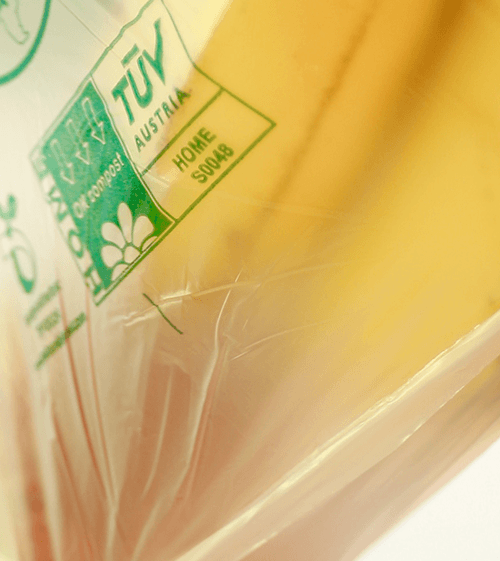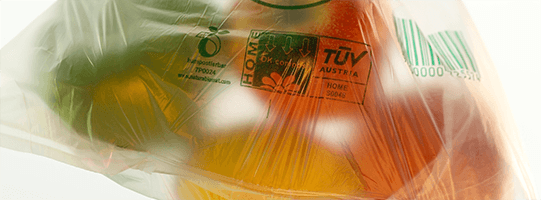Solution: OK Compost INDUSTRIAL
Solution: OK Compost INDUSTRIAL
OK Compost INDUSTRIAL
Packaging or products bearing the OK compost INDUSTRIAL label are guaranteed to be biodegradable in an industrial composting plant. This applies to all of their components, inks and additives. The sole reference point for the certification program is the harmonized EN 13432: 2000 standard: in any event, any product bearing the OK compost INDUSTRIAL logo complies with the requirements of the EU Packaging Directive ( 94/62/EEC).
Compostability
Composting can reduce the volume of organic waste quite significantly, while the compost produced can be used for agricultural and horticultural purposes. About 50% of all domestic waste comprises organic material, a percentage that is set to grow in the future owing to the growing popularity of biodegradable products (packaging material, disposable cutlery and plates, …).
What is the difference between “OK compost INDUSTRIAL” and “OK compost HOME”?
Products that are solely OK compost INDUSTRIAL-certified are those that compost only in industrial composting facilities (at temperatures between 55 to 60°C), so products that are solely OK compost INDUSTRIAL-certified should not go into the garden compost.
Conversely, OK compost HOME refers to products that also compost at lower temperatures, so they can go into the compost heap in your garden at home, hence the title “HOME”.
Is there any difference between “biodegradable” and “compostable”?
People often get “biodegradable” and “compostable” mixed up but they do not mean the same thing. A biodegradable product may be broken down by microorganisms but this does not necessarily imply that the product can be converted into good quality compost.
Biodegradability and compostability rely heavily on the environment where the product is broken down. As each environment (compost, soil, water, …) has different temperatures and microorganisms, the speed of the biodegradation process may vary from one site to another.
For example, bioplastics which are biodegradable in an industrial composting plant (the most aggressive atmosphere regime) are not always biodegradable in water or soil, or even in a compost bin in the garden (owing to the lower temperatures).
What tests are required to qualify for an OK compost INDUSTRIAL certificate?
The European Norm about compostability of packaging (EN 13432) requires (besides a clear and detailed description of the product) 4 tests:
test on biodegradation (chemical break down of the polymer of fibres)
test on disintegration (physically falling apart of the product in small fragments)
test on ecotoxicity (test if the composted product does not exert any negative effect on plants)
test on heavy metals content
NOTE – Biodegradation, ecotoxicity and heavy metal content are characteristics of the material, whereas disintegration is a characteristic of the material and shape (final product).












